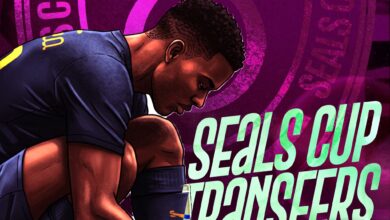Nigerian Women In Sports: A Beautiful Display of Athleticism
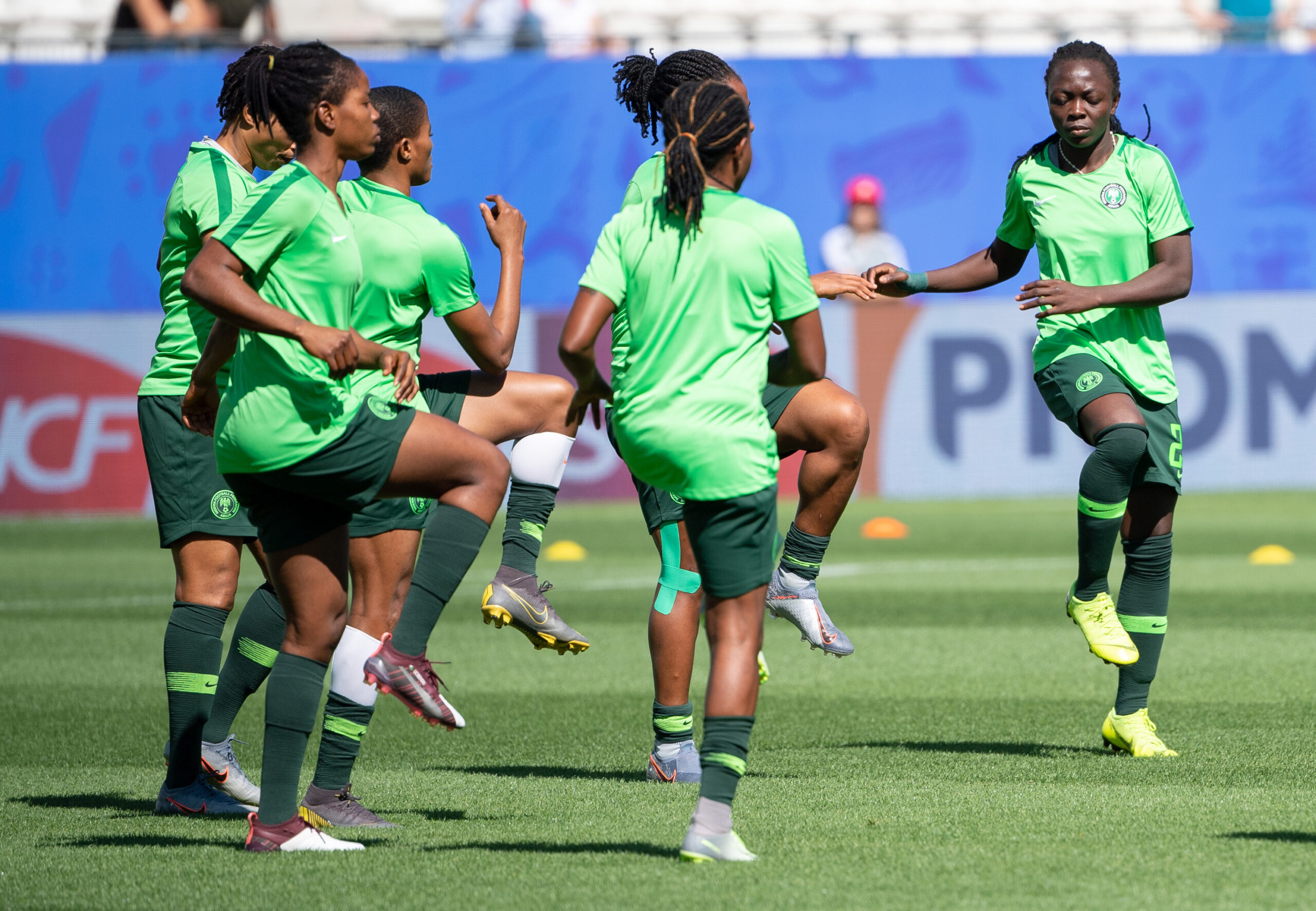
Asides developing a thick skin to the numerous reasons to be angry for being born a Nigerian, the average citizen finds solace in the little (perhaps not little) things that cement our nationality in the good record books in history. Over the past years we have had laudable achievements to boast of, as Nigerians, through the entertainment industry and sports. Particularly narrowing down to sports, Victor Osimhen was on the lips of every Nigerian and Italian throughout the 2022/2023 football season. Asisat Oshoala finished top scorer in Barcelona Femeni in the 2022/2023 season and third highest in Liga Femini in Spain and Rasheedat Ajibade finished top scorer in Atletico Madrid Femenino in the same season. Blessing Okagbare is also another force to reckon with; a 12 Gold and 5 silver medalist between 2013 and now.
These few words strung together don’t show the full achievements of our stars, not to talk of other names that were not mentioned. In this article, we are taking a closer look at our wonderful sportswomen. You might be wondering, ‘which women are we talking about again?’ ‘Is it not just Asisat Oshoala, Blessing Okagbare, Tobi Amusan, who is left?’ Questions like these are the reasons we need to talk more about the immense work these women put in and how they represent the green-white-green flag on the grandest stages across different sports.
First, the Nigerian Women’s National Football team (Super Falcons)
Super Falcons, as they are fondly called by young and old, is the nickname of the National female football team in Nigeria. Essentially, they are the female Super Eagles i.e. they represent Nigeria in international women’s football. Currently, they are the most decorated female football team in Africa, having won 11 Women’s African Cup of Nations (what we know as WAFCON). The 2018 Women’s AFCON was the 13th edition and it was held in Ghana. The Super Falcons won the hosts on penalties after a long 120 minutes ended in a goalless draw in the Accra Sports Stadium, Accra, Ghana.
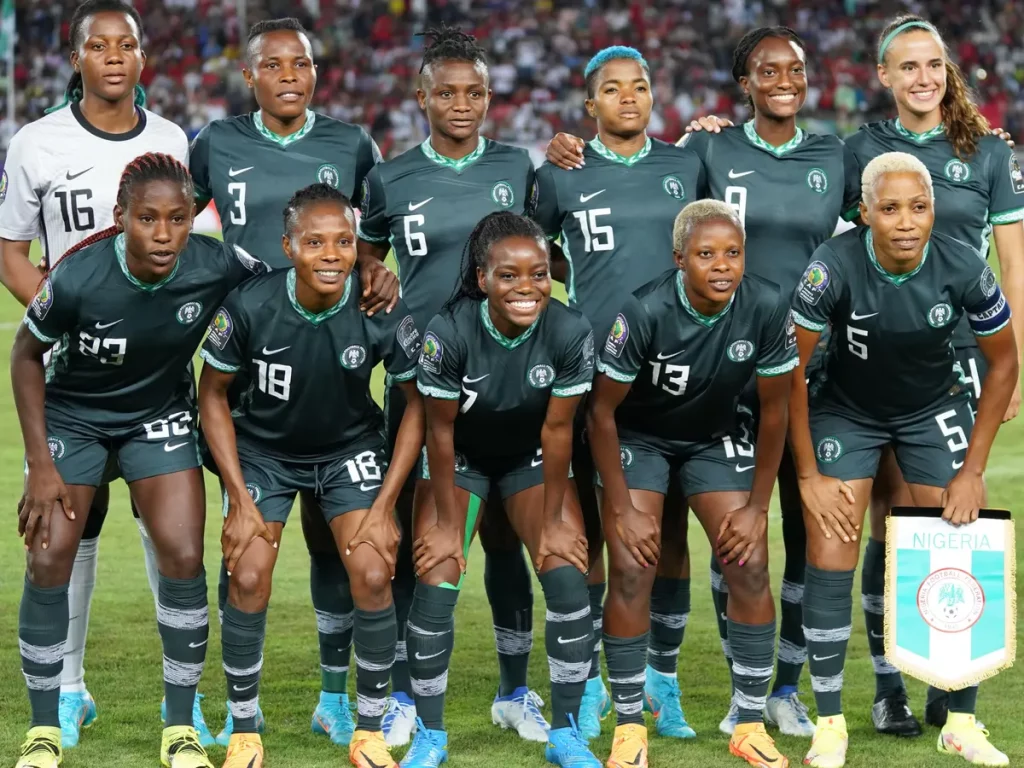
On the global stage, they are one of the very few teams that have qualified for every single edition of the Women’s World Cup, with their best performance in 1999 (no RO16 in that particular tournament) where they got to the quarterfinals (Round of 8). Their biggest win ever recorded was in 2019 against Niger at the WAFU Women’s Cup where they put 15 goals past Niger’s goalie at the Parc des Sports in Abidjan. Like the normalcy in every World Cup cycle, the last Women’s AFCON competition (in this case, 2022 AFCON) is the qualifying tournament for African teams in the World Cup. Randy Waldrum, current Super Falcons manager, led a 23-man squad (featuring Chiamaka Nnadozie, Onome Obi, Michelle Alozie, Toni Payne, Rasheedat Ajibade, Oshoala, Desire Oparanozie, Uchenna Kanu, and many more) to the 2023 World Cup tournament.
The Super Falcons were in Group B, an intercontinental group with Australia, Republic of Ireland, and Canada. They qualified after finishing second in the group with 5 points – and 3 goals from Kanu, Ohale, and Oshoala – from a win and 2 goalless draws. They advanced from the group alongside Australia to the Round of 16 where they faced the English women’s team (nicknamed the Lionesses). The Round of 16 match was an exhilarating yet rigorous 120 minutes with no goal that went down on the 7th of August, 2023, at Lang Park, Brisbane. Unfortunately for the Falcons, England advanced to the quarter finals after putting 4 penalties past Nnadozie in the shootout as Nigeria scored only 2 out of 4. Sadly, it was a wrap there and then but in that moment, Nigerians realized how much joy these women brought upon their faces. The internet was ecstatic and it almost felt like we qualified – even though we didn’t. The women deserved to win and they hope to bring more energy to the next World Cup in 2027!
Next, the Nigerian Women’s National Basketball Team (D’Tigress)
D’Tigress is the moniker for the official Women’s National Basketball Team in Nigeria. They represent the country in international women’s basketball competitions and are also regulated by the Nigeria Basketball Federation. D’Tigress have won the women’s Afrobasket Championship four times consecutively, six times in total, and they are also the current champions. The last four were in a row against Senegal in Bamako, Mali; Senegal in Dakar Arena, Dakar; Mali in Yaounde, Cameroun; and Senegal, for the third time, in Kigali, Rwanda – in that order from 2017 to 2023. As of February, 2023, the International Basketball Federation (FIBA) ranked D’Tigress as the 16th best female basketball team in the world – and the only African country in the top 20 list.
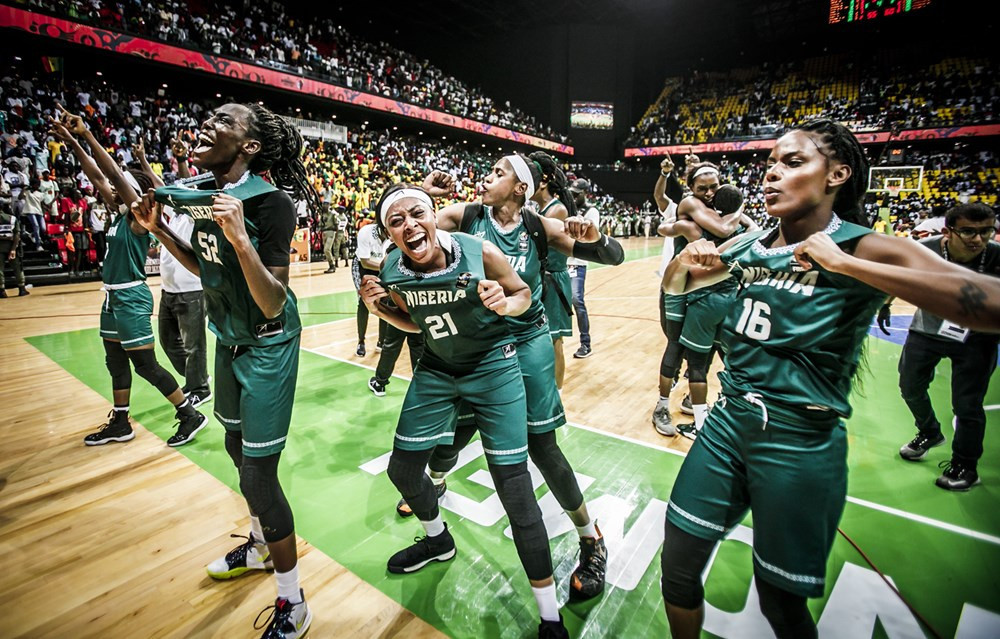
Although D’Tigress does not have a robust record in FIBA World Cup tournaments, they got to the quarter finals (the farthest by an African country) in 2018 where they got knocked out by the USA. They were withdrawn from the 2022 World Cup tournament hosted in Australia because the Nigerian Basketball Federation (NBBF) were unable to confirm D’Tigress’ participation in the World Cup up. However, Rena Wakama, the team’s head coach, managed a 12-woman squad at the 2023 Women’s Afrobasket Championship hosted in Rwanda.
It was the 28th edition of the tournament and it took pkace between 28th of July till 5th of August, 2023. The group stage consisted of 12 teams in 4 groups; D’Tigress finished on top in Group D with Egypt and DR Congo coming 2nd and 3rd respectively. The first in each group were automatic quarter-finalists and D’Tigress faced Mozambique in the quarters, and they won 59 to 52. They advanced to the semis, faced the hosts, and won 79 to 48 to qualify for the finals against Senegal for the third time in three consecutive tournaments. Just like the first and second, they sent Senegal home with a 10-point difference win in BK Arena, Kigali, Rwanda. As they continue to dominate Africa, we hope that in a few years, the world gets a taste of their domination.
Individual – Tobi Amusan
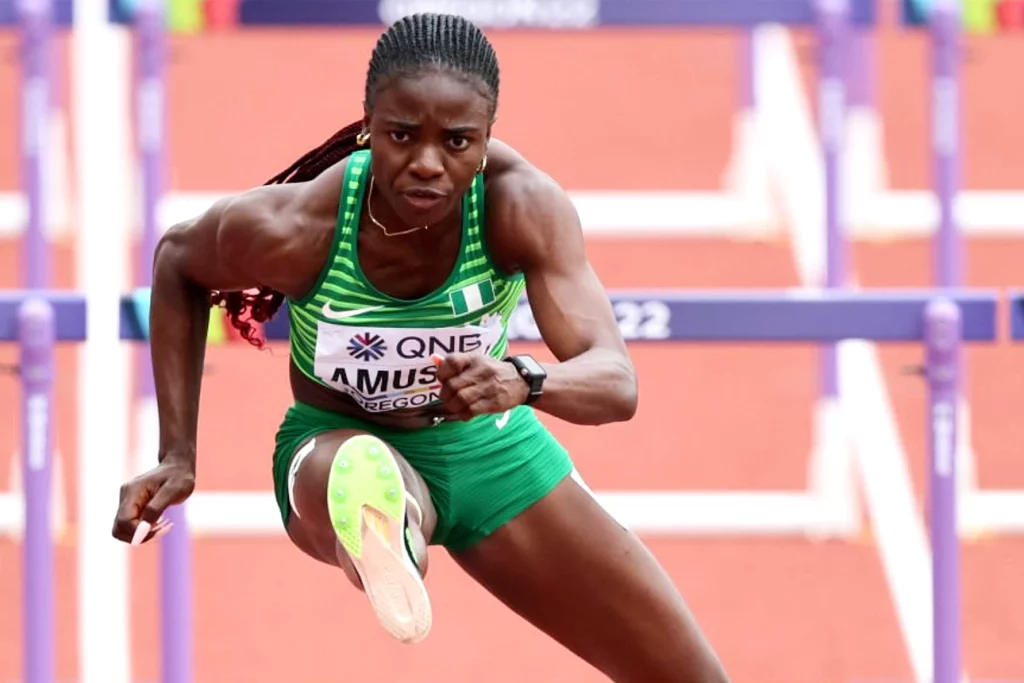
Oluwatobiloba ‘Tobi’ Amusan is a 26-year-old Nigerian born and bred in the Gateway State; South-Western region of the country. ‘Tobi Express,’ as she is fondly called, specializes in short distance races like the 100 metres hurdles. Her highest world ranking is at no. 1 where she currently sits. Her personal best in 60 metres Hurdles, 100 metres, 200 metres, and 100 metres hurdles are 7.84 seconds, 11.10 seconds, 22.66 seconds, and 12.12 seconds respectively. Since her first major international race in 2013, she has won 10 gold medals, 2 silver medals, and 1 bronze medal.
She is the current Commonwealth, African, and World Champion and also the record holder in those competitions. In the past 3 years, Amusan has wowed Nigerians whenever she participated in a race.
Talking about every Nigerian female athlete that has put smiles on the faces of Nigerians would render this article endless. While we can’t go on and on with the list, it is noteworthy to mention that Ese Brume, Favour Ofili, Olufunke Oshonaike, Imaobong Nse Uko, Ruth Usoro, and many many others are part of the women that have put – and are putting – Nigeria on the global map of incredible sportsmanship.
Peter Adeyemo
